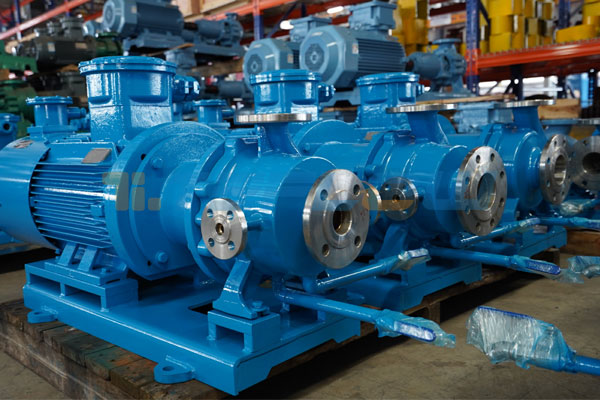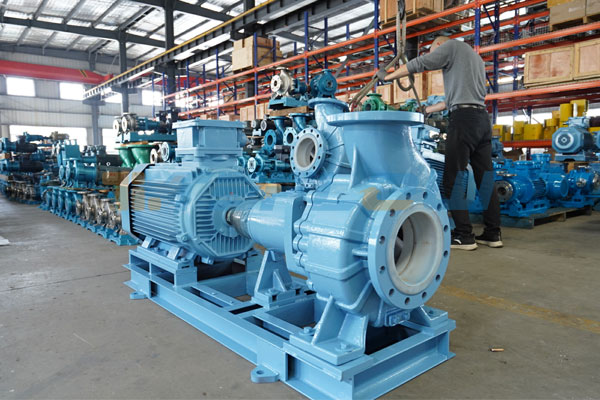Magnetic pumps and centrifugal pumps are two common types of pumps used in the field of liquid transport. They exhibit distinct differences in terms of working principles, application areas, and performance characteristics. This article delves into the disparities between these two pump types, helping you better understand their respective advantages and suitability.
I. Different Working Principles
Centrifugal Pumps:Centrifugal pumps operate based on centrifugal force. They draw in fluid through rotating impellers and expel it at high speed, generating centrifugal force to propel the liquid. These pumps are mechanical and often require mechanical seals to prevent leaks.
Magnetic Pumps:Magnetic pumps utilize magnetic force to transfer power instead of direct contact between mechanical components and the liquid. Permanent magnets inside the pump and external magnets transmit power through a magnetic field, driving the impeller's rotation and facilitating fluid transport. Magnetic pumps reduce the risk of leaks as they lack mechanical seals.

II. Variations in Application Areas
Centrifugal Pumps:Centrifugal pumps are typically used for handling high-flow, low-viscosity fluids such as clean water, wastewater, and petroleum. They find extensive application in industrial and construction fields.
Magnetic Pumps:Magnetic pumps are better suited for handling corrosive, flammable, high-purity, or zero-leakage requirements in fluids. They are commonly found in chemical, pharmaceutical, semiconductor manufacturing, and laboratory applications.
III. Distinct Performance Characteristics
Centrifugal Pumps:Centrifugal pumps usually have high flow handling capabilities, but they exhibit lower efficiency with highly viscous fluids. Regular maintenance of their mechanical seals is required.
Magnetic Pumps:Magnetic pumps offer good corrosion resistance, adapt well to viscous fluids, and reduce the risk of leaks. Their maintenance is relatively straightforward, but they often come with higher costs.

IV. Different Scenarios of Applicability
Centrifugal Pumps:Centrifugal pumps are suitable for general liquid transport, including applications such as water supply, wastewater treatment, and various industrial processes.
Magnetic Pumps:Magnetic pumps are ideal for scenarios where stringent demands for liquid purity and zero leakage are crucial. Examples include the transport of corrosive chemicals, pharmaceutical manufacturing, and the semiconductor industry.
Magnetic pumps and centrifugal pumps exhibit significant disparities in terms of working principles, application areas, performance characteristics, and scenarios of applicability. Choosing the right pump type that aligns with specific requirements is essential to ensure efficient and reliable liquid transport. When considering the use of magnetic pumps or centrifugal pumps, a thorough understanding of their differences aids in making informed decisions.





 +86 18130251359
+86 18130251359 teflowpumps@tlpumps.com
teflowpumps@tlpumps.com








 +86+0563-5093318
+86+0563-5093318
